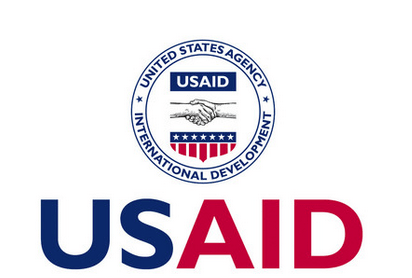 Ghana has been upgraded to Tier 2 on the US Department of State Trafficking in Persons (TIP) Report for demonstrating increased efforts to prevent human trafficking, protect victims and prosecute traffickers.
Ghana has been upgraded to Tier 2 on the US Department of State Trafficking in Persons (TIP) Report for demonstrating increased efforts to prevent human trafficking, protect victims and prosecute traffickers.
Before achieving that feat, Ghana had been consistently placed on the Tier 2 Watch List, which meant that she risked dropping to the Tier 3 Watch List before 2018.
The country, at that time, was reported to have failed to provide evidence of increasing anti-trafficking efforts.
Being on the Tier 2 Watch List is the lowest category before Tier 3, which requires an immediate cancelation of US development assistance.
Superintendent Mike Baah, the Director of Anti-Human Trafficking Unit of the Criminal Investigations Department of the Ghana Police Service, disclosed on Tuesday that Ghana made the gains because she adopted the prevention, protection, prosecution and partnership strategy in dealing with issues of human trafficking.
Speaking at a signing ceremony of Anti-Child Labour and Trafficking Strategy Document developed for the fisheries sector by the Ministry of Fisheries and Aquaculture, Superintendent Baah said 339 victims of human trafficking were rescued in 2017 by the Police Administration of which 190 were children.
He said four convictions were also made in respect of human trafficking that year, while in this year, 13 convictions had been made in child labour and four convictions in human trafficking.
He expressed the hope that the new strategy, which was launched by the Ministry of Fisheries and Aquaculture, in partnership with the US Government through the USAID, would help strengthen efforts at combating human trafficking and child labour in the country.
Mrs Elizabeth Afoley Quaye, the Minister of Fisheries and Aquaculture, said Child Labour and Trafficking (CLaT) was a major global problem about which governments, civil society and development partners showed grave concern due to its devastating impact on societies.
She said current reports show that two million children were involved in child labour and 200,000 in worst forms of child labour in Ghana.
As many as 2.7 million Ghanaians were directly involved in fishing, representing 10 percent of the workforce.
Mrs Quaye said it was unfortunate that more fishers continued to look for cheaper means of labour in the fishing sector, which had resulted in the exploitation of children through trafficking and child labour.
The Minister said more than 50,000 children believed to be trafficked annually in Ghana got involved in fishing in the inland bodies, particularly along the Volta Lake.
She said Child Labour and Trafficking of children was illegal and contravenes the laws of Ghana.
“It infringes on the rights of the child, affects children’s physical and mental health, and has significant implications for social and economic development at the individual and household level and for Ghana’s whole society”.
Mrs Quaye said Ghana had been working against the problem for many years, having ratified a number of international conventions and treaties and enacted legislations including the Children’s Act of 1998, the Human Trafficking Act of 2005, and the Domestic Violence Act 2006.
She said Ghana was showing much commitment to the fight against child labour by signing the National Strategy on Anti-Child Labour and Trafficking in the Fisheries Sector.
She said the approaches in the National Strategy were designed to effectively protect children and prosecute offences relating to child labour and trafficking in cooperation with other ministries, the police and politicians, regardless of party affiliation.
“In this Strategy Document we outline strategies for eliminating CLaT. Specific, strategies outlined in this paper include child rescue, rehabilitation, reintegration, and prevention.
“Other important strategies include community awareness raising and behaviour change communication, improved investigation and prosecution of offenders, and overall institutional strengthening and capacity building for the future,” she said.
Mr Christopher Lamora, Charge d’Affairs of the United States Embassy, who unveiled the Strategy Document with the Minister, commended Ghana for her commitment to fighting child labour and trafficking.
He said the efforts highlighted the cooperation of both Ghana and USA to eliminate all forms of child labour and human trafficking.
“The anti-child labour and trafficking strategy you are signing here today will increase the overall effectiveness of fighting child labour and trafficking within the fisheries sector at the national, regional, district and community levels,” Mr Lamora said.
Source: GNA























